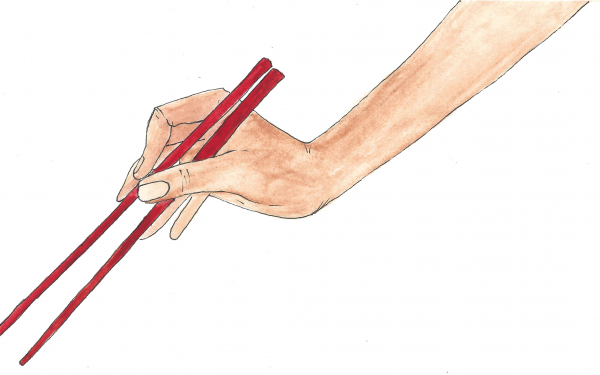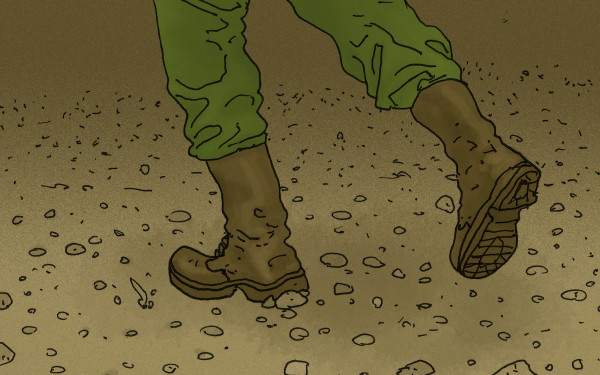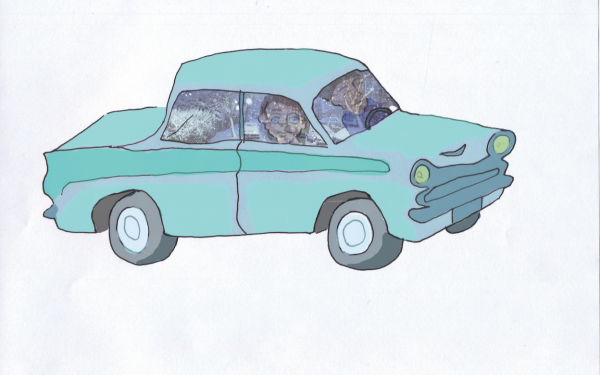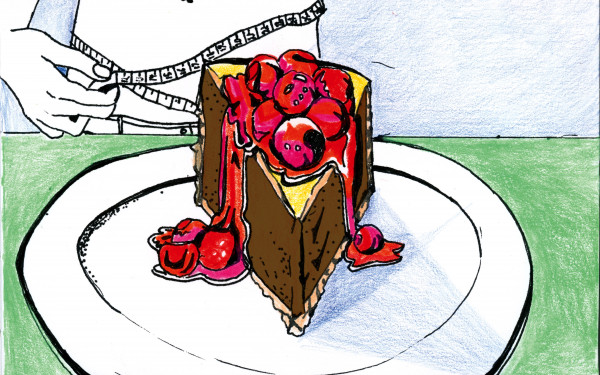Below the Clouds
Ash is picked up from the ground and tossed into the air, where it finds its way to my blinking eyes. Clutching a small medicine bag, I stagger my way down the cracked street, its faint warmth tickling my bleeding feet.
The fires were from a time before my birth, though they still burn across the Earth’s charcoaled ruins to this day. The long-collapsed buildings are still a sight to behold even at my age; their ancient skeletons threatening to bury you in soot and smoke as they teeter between life and death. A dead city, with the grey of concrete and steel now matching the ashen sky. Undoubtedly the people that live above the clouds find it all quite amusing, a grand irony that need not apply to them. I should know. I thought the same way when I was younger.
The dilapidated remains of what once was a theatre looms in the distance. The sky above it bears down upon the land, a gray, howling tyrant, binding the people below to their tombs. I slowly make my way towards it, my breath heavy and rasping as though the air itself is a commodity here. I stumble, catching my breath.
Purpose is a hard thing to come by here. When I was one of the few that lived above the blackened sky, I had a purpose. I had been told that being a doctor was a noble profession. I thought I would heal the sick and be rewarded in kind for my good work, but like those before me when eventually I outlived my usefulness I was cast from that heavenly spire. A purpose can make one steel their resolve and drive themselves forward.
I pull myself from the ground and drag my sore legs past the threshold of the theatre’s corpse.
What was within the theatre could hardly be distinguished from what was on the outside. What may once have been a beautiful display of reds and golds now stands as little more than the charred husks of fine furniture, a burnt stairway held up by only a few beams of wood and a broken chandelier that lay upon the floor. I ascend the stairs, my heart pounding from exertion and fear that I may have delayed too long.
Through one of the doors to the theatre’s balcony, a woman is lying on a cot of salvaged cushioning that had not been consumed by flames. She is young, though her frame is slender and weary, as though the slightest touch may cause her to crumble into the ash that lay around her. I make my way to her side as fast as my old body would allow, laying out what little medicine I have left in hopes of easing her pain.
“You came back,” the woman croaks, her voice weak and dry.
“I told you I would, didn’t I?” I say through a feigned smile as I hand her a small glass of water diffused with medication. “Here, drink.”
With only a few sips she began to hack and cough, a thick, black, tar-like slime spilling over her lips. Her body falls back, too weak to sit as stillness fills the room. The woman’s breath is heavy and choked by the soot that fills her lungs. Hopelessness washes over me like a tidal wave. I can’t move, I know what is to come and there is nothing left for me to do. For a moment I thought she was staring at open space, unable to do anything other than think, but there is a purpose to her gaze, an intensity that cannot be questioned.
“Please,” she whispers, her eyes locked on the small cluster of fabric and chair stuffing that sits beneath the theatre seats.
“What is it?” I ask.
“Please,” she says again.
I move to the chair she is looking at and pull away at the cloth and fabric. As the stuffing falls away, I hear something, the faint whimper of a child. My hands grasp onto something soft yet firm.
Pulling them back, I reveal the scarf that swaddles the child like a bright blue cocoon. It takes me a moment to understand what I hold in my hands this small thing—no more than half of a year into its life—a beacon of colour and light.
“I have her,” I say, rushing back to the woman’s side. “Your daughter’s here, I’ve got her.”
The woman is still. I mutter to the air about her child, as though I could tell her spirit that her daughter was safe. I look down at the life in my hands, watching as it coughs on the thick air that permeates the world. This is no place for a child.
* * *
The wind drives ash clouds into me as though hell itself were pulling me back, away from the pearlescent gates. Shards of wood are hoisted from the bodies of dead homes by twisting dust devils and hurled against me, lashing my skin like a nine-tailed whip. Before me, among the chaos of ash and dust stands a tower. A glimmering, argentine, monolith dedicated to the strength of the wise and the wealthy. I pull myself up the steps to that grand tower’s golden door, the lens of a camera appearing at the top of its smooth frame.
“You are not welcome,” boomed a loud, mechanical voice. “Return to your home.”
“Please,” I say, lifting the life I hold in my shaking arms to the camera that quickly vanishes back into the door.
Moments move on like years as I clutch the child to my chest. They will never come down to this broken world. They are too far away to see the lives of the ants that live on the ground. I sit, unable to will my legs to stand as the weight of the child’s coming fate pins my arms. The world is dark, and far too hot to breathe.
But then there is a crack, a shimmer of light and I am blinded by some golden otherworldly glow. I do not see the child go, but I feel hands reach down and pluck her from my arms. There is a moment, just as the doors close and the world darkens, that I see her within the golden glow as she is brought to what lies above the clouds.

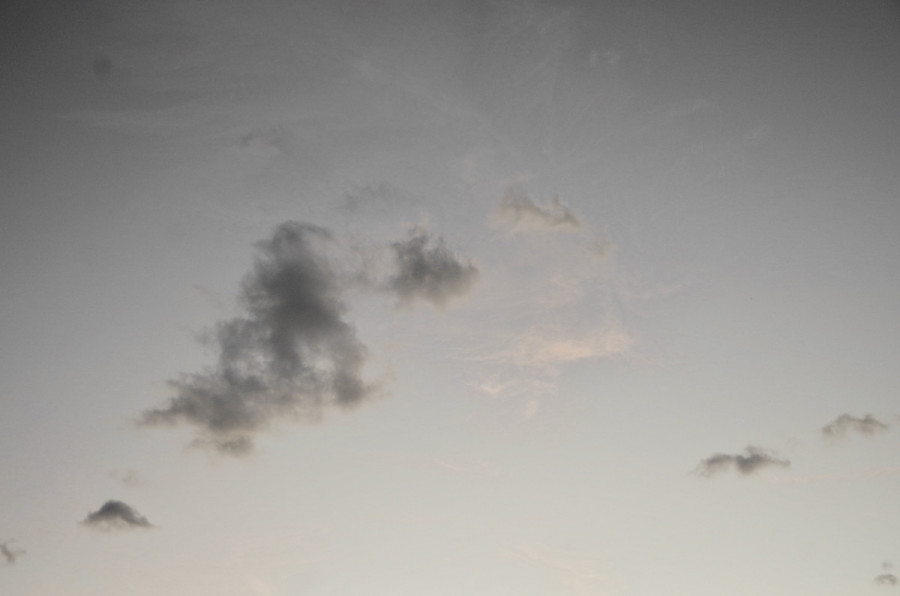
_600_832_s.png)

